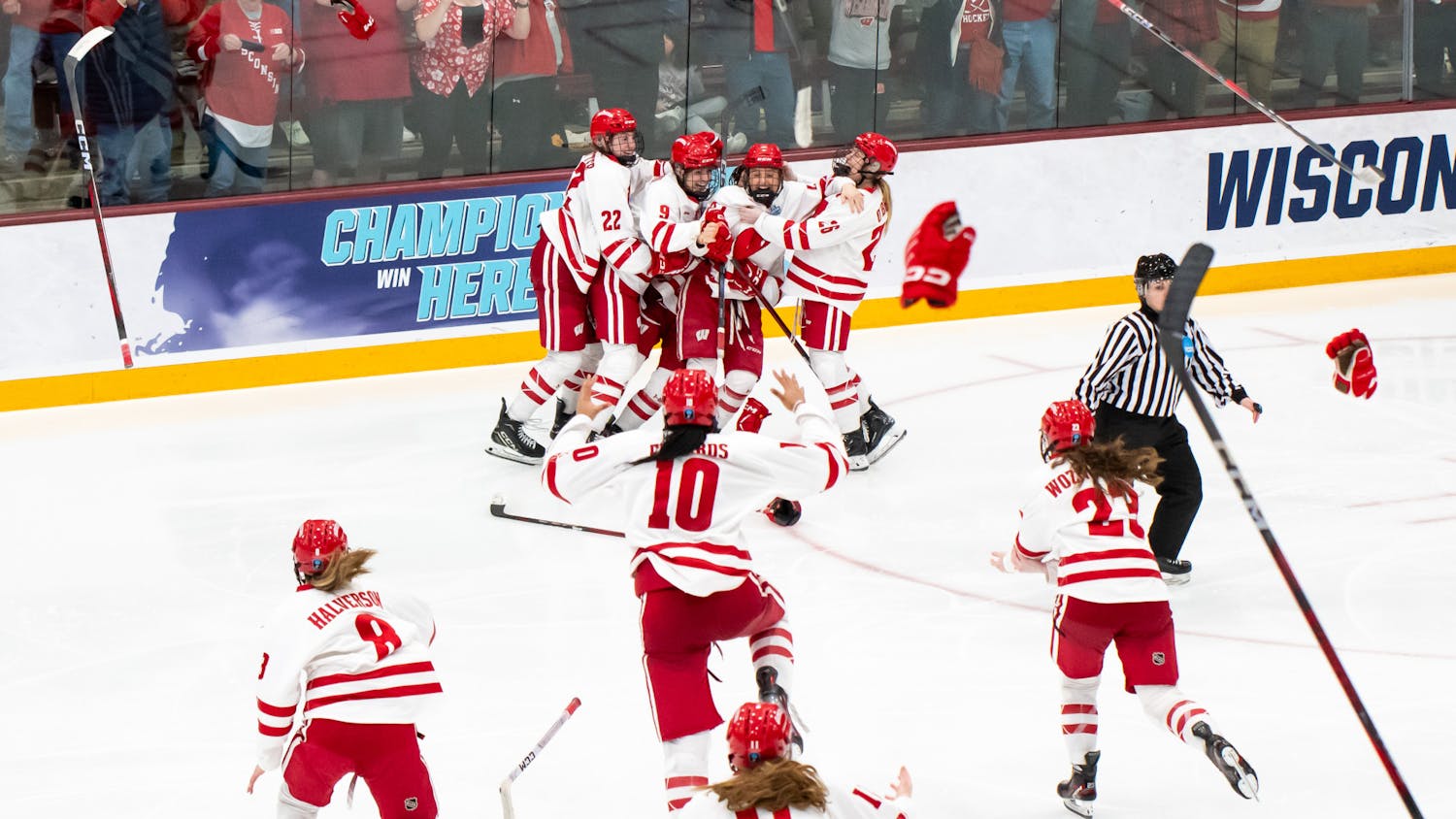Balancing the newfound energy of city life with academics proved challenging for Emily Nelis, a student who came to UW-Madison after growing up on an Indian reservation in northern Wisconsin.
Now a leader in the Native American community on campus, finding a community of other native students helped combat the initial culture shock.
Her experiences are not unique; many native students struggle when adjusting to life on the UW-Madison campus. The Native American student organization Wunk Sheek, of which she is now co-president, helped her find a family on campus.
“Wunk Sheek was and still is my little hub to be who I am without sacrificing anything ... I could talk about something from the res, I could talk about powwows, I could talk about ceremonies,” Nelis said. “Wunk Sheek was and is my biggest support system on this campus.”
Recently, in an effort to make UW-Madison a welcoming place for students like Nelis, Associated Students of Madison passed legislation requiring council meetings to begin with a recognition that the university sits on indigenous land.
According to ASM Equity & Inclusion Committee Chair Ali Khan, a non-native student suggested the legislation to ASM. Khan then used his connections with Wunk Sheek to bring the voices of native students into the conversation.
“I suddenly felt a little uncomfortable, because I felt like we were speaking on behalf of native issues when we didn’t really have that perspective in the room when creating the legislation,” Khan said.
According to Khan, bringing in this perspective made the legislation stronger and more effective.
Wunk Sheek helped ASM amend it to call on the university to recognize Columbus Day as Indigenous People’s Day, and install a plaque on the Bascom Hill statue of Abraham Lincoln, recognizing his role in the systematic oppression of native people.
“We realized that there was a lot more [to do] than just recognizing Indigenous People’s Day to better the lives of Native American students on this campus,” Khan said.
While groups like Wunk Sheek and ASM work to elevate the voices of native students, UW-Madison should do more to support the Native community, according to Khan.
The American Indian Studies department is not properly funded, Khan added. He also worries that Wunk Sheek will lose funding if allocable segregated fees become optional.
Recently, UW-Madison has worked to reach out to native populations. Nichole Boyd, the American Indian Campus and Community Liaison, said her office offers potential native students specific tours showcasing the resources available to the native community.
Despite the Ho-Chunk Nation holding treaty rights to UW-Madison’s campus, the university struggles with recruitment and retention of native students.
“As native students, we tend to have the lowest retention rates and the lowest graduation rates in college, and I think that for an institution like UW that has the Wisconsin Idea ... it’s important for them to do better for their indigenous students,” Nelis said.
As an attempt to address these problems in the native community, UW-Madison administration started the Native Nations Working Group last summer. Made up of about 30 faculty and staff, the group aims to better meet the needs of native students on campus in a culturally responsive manner.
“The most important thing is we went to the tribes we didn’t ask them to come to us, we went to them and asked to meet. It’s really important again from an indigenous point of view to go to that community and be on their land,” Boyd stated.
Sexual assault is another challenge for the native community; while Native American students make up just under 1 percent of the student body at UW-Madison, 47 percent of the native women at UW-Madison report being sexually assaulted, according to Boyd.
“My office works directly with University Health Services and EVOC to make sure that those students are getting counseling and support services and making sure that it’s done in a culturally responsive way,” Boyd said. “There are ceremonies within our communities to make sure that those women heal properly, so [there is] access to that if a student would want to participate in something culturally.”
For Khan and Nelis, how often native women at UW-Madison are assaulted is just another example of the university not doing enough to support the Native American community.
“To hear that number was just mind blowing, well first of all it’s just super embarrassing, and disgracefuI, I just feel like the university isn’t doing enough for the Native American student population on this campus,” Khan said.
According to Nelis, Native Americans make up such a small portion of the student body that their voices are often left out of important campus discussions.
“There is a bigger need for reaching out to tribal communities not only on reservations but also in urban areas like Milwaukee or Chicago, or other cities with really large native populations, just to make it known that there are resources here on our campus,” Nelis said.
Nelis expressed her concerns that campus resources are not visible enough.
“I think that there definitely is a bigger need to just kind of get those resources out to native students in high school still so that they know that UW can be a place for them to feel comfortable,” Nelis said.





